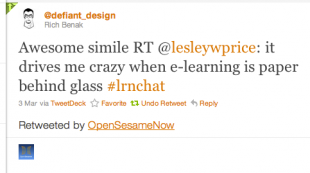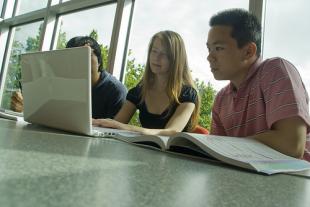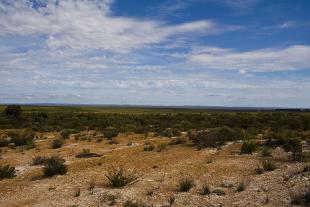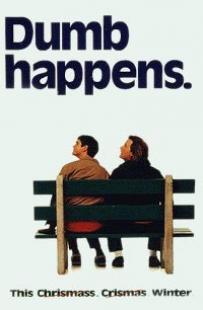As professional training and instruction moves online, subject matter experts, in-person instructors and offline trainers are facing new obstacles as they reinvent their offline content. ... [more]
Last week, I blogged about two of the broken systems in education - timing and testing - and established some possible roles for technology and game mechanics to improve them. It’s time to get serious about short term ways to improve learning systems for learners of all ages.At SXSW, Jillian Darwish of KnowledgeWorks shared her vision for the future of education: One where learning is a journey, where each learner’s experience is personal, customized and self-directed. ... [more]
At SXSW and at TED, researchers, game designers and teachers (and a former hedge fund analyst) shared diverse visions for the future of education. They got started by explaining what's broken in our current vision for education systems.These discussions are focused on K-12 and college level education, but we have an opportunity in the professional education sector to lead the way. Those of us already using elearning in the workplace understand that the learning journey doesn’t end at age 18 (or 22) - in fact, it never ends. ... [more]
Last week, I blogged about three emerging trends in elearning, as revealed by the annual Horizon Report, which analyzes potential uses of emerging technology for learning. While the paper was very insightful, it had one omission: a discussion of the opportunity to use games for learning. All kinds of games, not just video games, are incredibly powerful at engaging users voluntarily in learning new skills and solving challenges -- and doing so on an ongoing basis. How can we apply these kinds of game designs to professional learning? ... [more]
The Horizon Report is an annual report describing emerging technologies and their potential applications in learning and education, produced in collaboration between The New Media Consortium and the EDUCAUSE Learning Initiative.This report is infinitely useful for prodding thought about what we need to be working on today to ensure elearning continues to evolve to meet future challenges. ... [more]
OpenSesame is proud to announce updated user profiles, with many new features. I’ve created a screencast with my completed profile to provide an example of the possible features in a completed author profile, including a logo, bio, employment history, education history and links to your Twitter and LinkedIn profiles:For sellers, the more comprehensive profiles offer you an opportunity to detail your qualifications, highlight endorsements and reviews and make your courses more appealing to customers. ... [more]
A few #lrnchats ago we discussed how learning professionals themselves learn. Someone (forgive me, I can’t remember who) recommended that, to learn new things, we should occasionally set out to be the dumbest person in the room - to admit what you don’t understand in order to gain understanding. Of course, intermittent “dumbness” comes naturally to me. This is particularly true because I work in a room full of software developers, and their conversations, on a good day, sound like German to me. ... [more]
In Part 1 of this series on creating the social learning workplace, I defined social learning and social media, and set you on your way to choosing the tools. I’m assuming you’re reading this post because you’ve decided that social learning is a good idea for you and your organization.It isn’t enough to create a social learning environment. To make it valuable, you’ve got to get your users hooked on great learning opportunities, valuable content and fun conversation. ... [more]
Video game camera technology like the Kinect creates engaging, interactive virtual experiences for games like Dance Central, Soccer and Motion Workout 2, andit’s also inspiring really cool hackslike this one:Little Magic Stories from Chris O'Shea on Vimeo.Not only are these kids almost criminally adorable, this use of consumer video game technology is amazing. ... [more]
Social learning. We’re all talking about it, wishing for it and hoping to facilitate it in our offices. But what is it, exactly? I participated in a webinar a few weeks ago in which the speaker used “social learning” and “social media” interchangeably, creating a confusing mishmash of misinformation. It’s a common misconception, so let’s clear it up.Social learning is knowledge acquisition that occurs in communication between people. Not just the act of using social media to ask a question - but the act of communicating with peers, colleagues and the larger world to seek information. ... [more]


.JPG?itok=3djckJjY)
.JPG?itok=pTVqCIlT)



